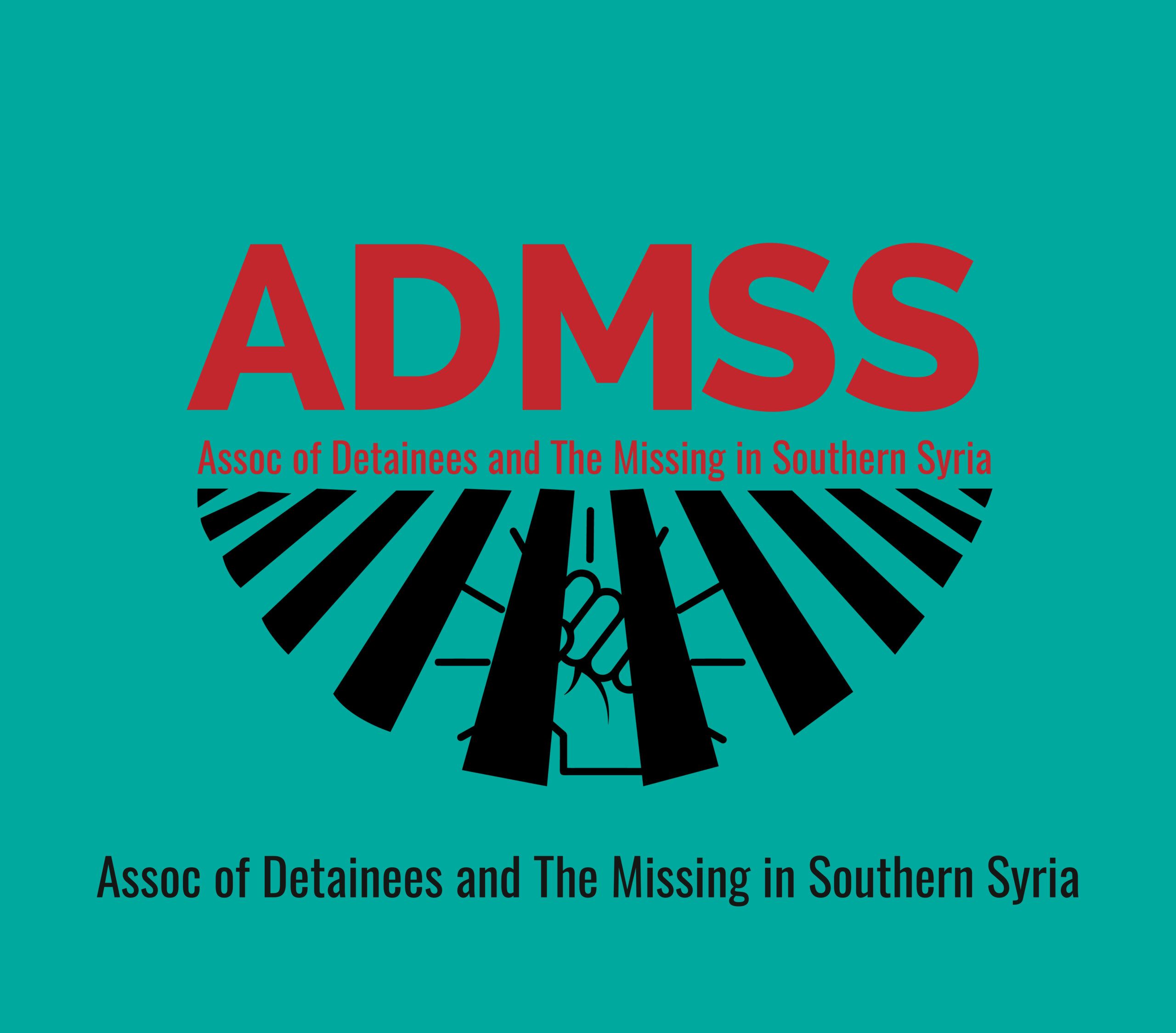Our Mission
The mission of ADMPSS is justice and fairness for victims of detention, enforced disappearance, and all human rights violations in southern Syria, and striving to prevent the recurrence of violations.
Establishing a comprehensive response is crucial for addressing these challenges and promoting accountability for human rights violations. It is essential for addressing past injustices and building a foundation for lasting peace and stability in Syria.
Introduction
The Syrian conflict, particularly in southern Syria, has been characterized by widespread human rights abuses, including arbitrary detention and forced disappearance, torture, and extrajudicial killings.
Many individuals and families in southern Syria have endured unimaginable loss and trauma.
In the wake of years of violence and repression, establishing an effective and comprehensive response mechanism is essential for these affected individuals and families.
Background
As the Syrian crisis reaches its fourteenth year, its enduring impact on millions becomes increasingly apparent. In the spring of 2011, the province of Daraa witnessed the inception of peaceful protests sparked by the arrest of children who had written anti-regime slogans on school walls, inspired by the unfolding events of the Arab Spring, notably in Egypt and Tunisia.
In response to these peaceful demonstrations, the Syrian regime employed excessive force, leading to the widespread expansion of protests across the nation. With each passing day, regime violations multiplied, resulting in countless detentions, disappearances, and deaths, alongside the displacement of millions both internally and to neighboring countries, Europe, and beyond.
By the summer of 2018, the Syrian regime had regained control of southern Syria through the Southern Settlement, brokered by Russia and Jordan. However, far from bringing stability, this agreement only exacerbated the suffering in the region. Despite promises of amnesty, such as Decree No. 7 of 2023, political detainees and opinion prisoners remained incarcerated, further deepening the despair.
Following the regime’s reassertion of control, foreign militias, including Iranian-backed groups and Hezbollah, infiltrated the region, contributing to a deterioration of security and a rise in illicit activities such as drug trafficking. Consequently, phenomena like child labor, gender-based violence, and early marriage became more prevalent, exacerbating the already dire humanitarian situation.
In the aftermath of 2018, southern Syria witnessed the withdrawal of non-governmental humanitarian organizations, leaving a void in assistance and support. This absence has led to a near-complete lack of documentation, accountability, and psychosocial support, leaving victims of violations ( Whether residing in southern Syria or displaced to northern Syria and neighboring countries.) without recourse and perpetuating a cycle of suffering and neglect.
The drastic shrink in funding for humanitarian initiatives in southern Syria by donors post-2018 has significantly exacerbated the challenges and intricacies surrounding the documentation of violations and provision of support to the families of victims and detainees.
Since 2018, the Syrian regime has assumed control over the management of issues related to violations, victims, and their families in southern Syria. This regime, predominantly responsible for arbitrary detentions, extrajudicial killings, and enforced disappearances, has dictated interpretations and classifications based on its own agenda. Notably, members of the Syrian army and associated foreign and local militias are portrayed as victims, while civilians, along with their families, are systematically labeled as terrorists devoid of any rights or acknowledgment of their status. Consequently, the allocation of support to the families of victims has been guided in accordance with the agendas and interpretations propagated by the regime. This alignment with the regime’s stance, which consistently denies the presence of political detainees in Syria and absolves itself of any responsibility towards the families of victims, has resulted in an unjust deprivation of essential support for these families. This situation has rendered the dossier of detainees in the southern region deficient and distorted, thereby rendering advocacy efforts and mobilization for their cause fraught with risks and inadequacies in resource allocation.
Establishing and supporting a comprehensive response is crucial for addressing these challenges and promoting accountability for human rights violations. It is essential for addressing past injustices and building a foundation for lasting peace and stability in Syria.
Objectives
– Establish a comprehensive detainee database to document cases of arbitrary detention and enforced disappearance.
– Systematically document and analyze human rights abuses focusing on crimes against humanity, the existence of crematoria, and instances resembling holocausts for use in legal proceedings, transitional justice mechanisms, and advocacy efforts.
– Providing financial compensation and support services to survivors of regime torture and abuse, as well as families of the forcibly disappeared and victims of extrajudicial killings.
– Addressing survivors’ and families’ immediate and long-term needs, including medical care, psychosocial support, legal assistance, and economic empowerment initiatives.
– Referral to the comprehensive transitional justice mechanisms to address past human rights violations and promote accountability and truth in Syria.
– Implement gender and youth-focused initiatives aimed at empowerment and resilience-building for affected individuals and families.
– Enhancing the socio-economic inclusion and participation of crisis-affected youth in public life and community development initiatives.
– Strengthening the resilience and capacity of women and youth to cope with the impact of conflict and displacement and to contribute to peacebuilding and public life efforts in their communities.
